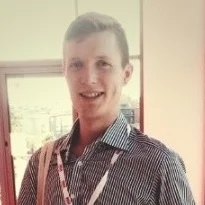Inkjet Ink Characterisation
Viscosity, dispersions, jetting & surfaces
Wednesday 23 - Thursday 24 January 2019
SH Valencia Palace Hotel, Valencia, Spain
COURSE FOCUS
Development of high quality inks and fluids for inkjet applications requires state-of-the-art characterisation equipment and techniques. From fundamental ink properties such as viscosity and surface tension, which have a crucial impact on jetting performance, through analysis of particulates dispersed within the ink, understanding these properties is key to getting the best out of an ink development project. In addition, it is vital to understand how the developed ink actually behaves, both on ejection from the printhead and when landing onto the substrate of choice.
The Inkjet Ink Characterisation course gives an excellent introduction to these essential areas of study, presented by industry experts from leading suppliers and institutions in the field. The course will give you the basic foundations as well as a more detailed understanding of the vital equipment and techniques.
Live Demonstrations
As part of the course, there will be demonstrations using a JetXpert drop visualisation system - your chance to see the system in action.
COURSE OUTLINE
Wednesday 23 January
08:00 - 09:00 Registration
09:00 Course begins
Monitoring and controlling pigment particle size
Dr Sarennah Longworth-Cook, Malvern Panalytical
Understanding the links between particle size and ink performance
Overview of light scattering techniques for measuring particle size
Pros and cons of different measurement techniques and approaches
Practical examples
Evaluating and improving dispersion stability
Dr Shona Murphy, Malvern Panalytical
Understanding stability mechanisms for ink dispersions
Factors controlling stability – particle size, steric effects, zeta potential and viscosity
How to make stable dispersions – selecting the right approach for your ink
Practical examples
Assessing the impact of polymer structure on ink performance
Dr Stefan Cairns, Malvern Panalytical
Understanding the role of polymers for inkjet applications
Correlating polymer properties with polymer solution behaviour including viscosity
Measuring molecular weight, molecular structure and intrinsic viscosity
Practical examples
12:30 - 13:30 Lunch
13:30 Session begins
Optimising ink rheology for printing applications
Dr Shona Murphy, Malvern Panalytical
Understanding the importance of fluid rheology for inkjet printing
Basic rheology theory - viscosity and viscoelasticity
Rheological test methods for inkjet inks and processes
Practical examples
Basic property measurements - surface tension
Dr Thomas Willers, Krüss
Surface tension - introduction
Relevance to droplet formation and spreading in inkjet printing
Interplay of surface tension and viscosity in drop formation
Impacts on wetting
How to optimise ink-substrate adhesion and spreading
Interfacial rheology and its relevance to drying
Theories and methods of measurement - compared and contrasted
Application examples from inkjet industry
17:00 Session ends
18:00 - 19:00 Reception
Join us for beers, wines and good company!
Thursday 24 January
09:00 Session begins
Jetting and print quality analysis
Kyle Pucci, ImageXpert
Introduction to drop analysis
How is in-flight analysis used?
Drop formation
Reliability
Misting
Nozzle-to-nozzle consistency
Drop measurement
Simple application examples
Overview of techniques
Fundamental measurements
Practical demonstration
Introduction to print quality analysis
How is print quality analysis used?
Dot properties
Line properties
Solid area quality
Colour registration
Ink interaction
Overview of techniques
Practical examples
12:30 Course ends
COURSE LEADERS
Dr Sarennah Longworth-Cook, Product Technical Specialist - Laser Diffraction
Malvern Panalytical, UK
Sarennah Longworth-Cook has a PhD in Materials Science from the University of Cambridge. After graduation, she spent 9 years working in particle characterisation labs for multinational manufacturers of fine chemicals, catalysts and foods. She has experience in a wide range of analytical techniques, including electron microscopy, surface science, electron and X-ray spectroscopies, and particle size analysis. Sarennah joined Malvern Panalytical in June 2014 in the role of Product Technical Specialist – Laser Diffraction. She provides high-level technical support across the business, to users, product management, marketing and sales functions. Her main focus is ensuring users are empowered to make high quality, meaningful measurements of particle size. Sarennah’s favourite application is chocolate.
Dr Shona Murphy, Product Technical Specialist – Rheology
Malvern Panalytical, UK
Shona is a Product Technical Specialist for Malvern’s rheometry products based in the UK headquarters. She has completed a PhD in Polymer Science from the University of Birmingham studying the rheological characterisation of the influence of supercritical carbon dioxide on polymer reptation time. Shona is dedicated to helping our customers make high quality and meaningful rheological measurements.
Dr Stefan Cairns, Product Technical Specialist – Separations
Malvern Panalytical, UK
Dr Stefan Cairns is a Product Technical Specialist for GPC/SEC at Malvern Panalytical. He completed a PhD at the University of Edinburgh, specialising in ring opening polymerisation, where he became an expert in monomer, polymer and catalyst synthesis, and characterisation. He has a first has a first-class honours degree in Chemistry from University College Dublin and previous industrial experience working at Akzo Nobel.
Dr Thomas Willers, Head of Applications & Science
KRÜSS, Germany
Dr Thomas Willers studied physics in Cologne and Barcelona. He received his PhD degree in experimental physics at the University of Cologne. In 2012 he joined KRÜSS GmbH at its headquarters in Hamburg where he is now head of the department for Applications & Science. He is responsible for the KRÜSS Application Labs as well as teaching activities and now has more than five years’ experience in teaching surface science.
Kyle Pucci, Applications Engineering Manager
ImageXpert, USA
Kyle is Applications Engineering Manager at ImageXpert Inc. and lives in Nashua, NH USA. He graduated in 2014 from Villanova University with a BS in Mechanical Engineering. He specialises in integrating controllers and hardware with the JetXpert dropwatcher and offering support, installation, and training.







